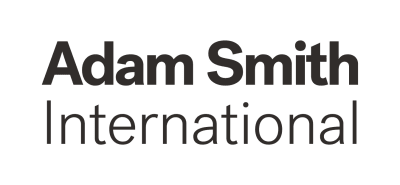
Delivery Associate (Organised Illegal Migration) - UPSCALE II Programme
- Hybrid
- Islamabad , Islamabad, Pakistan
- Project Positions
Job description
Technical context
UK-Pakistan Serious Crime and Law Enforcement (UPSCALE)-2 programme is an UK Government- funded programme designed to help tackle cross-border crime that undermine the security and prosperity of the UK and Pakistan. This phase of the UK-Pakistan Cooperation on Serious Crime and Law Enforcement will run for 12 months from April 2025 to March 2026. This programme continues our critical mission of enhancing protection for vulnerable communities through improved systems and reduced threats, building upon the remarkable achievements of our previous project phase.
The programme is intended to address cross-border crime across the following thematic areas:
Criminal Justice Cooperation – MLA and Extradition
· Mutual Legal Assistance and Extradition: To make the process in Pakistan more effective, efficient, expeditious, and accountable.
Irregular Migration and Organised Immigration Crime
· Strengthen detection and targeting of irregular migration via Pakistan airports.
Strengthen community protection and mitigate against diaspora high harm offenders
· Sex Offender Management: Fully operationalise an effective and legally compliant sex offender register following Nov 2024 launch.
· Online Child Sexual Exploitation and Abuse (OCSEA): Deliver Artificial Intelligence (AI) driven capability to better target OCSEA.
Criminal Record Sharing
· The quality of criminal records data transmitted from Pakistan to the UK is prompt, reliable, consistent, and adequate. Pakistan is tracking relevant information.
Countering Narcotics
· An enhanced and strengthened system capacity improving the potential to tackle shared narcotics-related threats.
Improved law enforcement cooperation on Illicit Finance
· Pakistan systems deliver against FATF commitments and better use illicit finance capacity to disrupt criminal activity, including with UK nexus. The aim of the project is to deliver meaningful and measurable results in the tackling of cross border crime, building systems and institutional capability that provide a sustainable foundation for the operational effectiveness of relevant UK and Pakistan agencies.
WAYS OF WORKING
Project approach
ASI is implementing a problem-driven iterative adaptation (PDIA) approach to system reform. This places a priority on the delivery of results, in line with the project’s theory of change, logical framework and with the agreement of project leadership.
ASI way of working
All associates are required to work in accordance with ASI’s best practice of:
· Results-focused problem solving.
· Collaborative working to building and maintain great relationships.
· Developing and sharing insights, technical knowledge and thought leadership within the project and across ASI.
Contractual and policy compliance
All associates are expected to read and understand the obligations detailed in their contract, including adherence to ASI policies. This includes use of ASI systems for communication and for storage of ongoing and completed project work. Associates should note that over the course of the project they are accountable to ASI and act as ‘ambassadors’ of the company.
KEY RELATIONSHIPS
Internal:
· Team leadership and management: Team Leader, Programme Director
· Team management: Programme Management Unit
· Regional ASI leadership: Head of Pakistan, Head of Pakistan Finance, People & Talent Manager, Operations Manager, Head of Duty of Care.
· Other ASI programmes: Pakistan programmes, international programmes working in the same sector.
External:
· Clients: Foreign, Commonwealth and Development Office representatives in the British High Commission.
· Counterparts: Pakistan and UK agencies operating in the project’s technical space.
· Project consortium partners and suppliers.
· Other project stakeholders from government, bilateral agencies, multilateral agencies and non-government organisations.
KEY TASKS
Part A: Technical Skills
Support Results-Focused Delivery
· Work closely with the Workstream Lead to support adaptive and problem-driven delivery of reform activities.
· Assist in monitoring workstream progress against relevant indicators and outputs in the programme’s theory of change and logframe.
· Contribute to drafting inputs for monthly and quarterly progress reports, ensuring accuracy and consistency of data and narratives.
· Help track risks and issues affecting delivery and flag them to the Workstream Lead for resolution.
2. Documentation & Reporting
· Lead on maintaining high-quality documentation, including but not limited to:
– Workstream-level progress monthly and quarterly reports
– Meeting minutes and action logs
– Presentation decks for internal and external meetings
– Briefs or talking points for government counterparts
· Ensure consistency in formatting, language, and branding in all materials prepared for submission or sharing.
· Maintain organised digital folders (e.g. on SharePoint) for all project documentation.
3. Data Collection & Analysis
· Support the collection of quantitative and qualitative data from counterparts and project partners relevant to the workstream output and outcome indicator evidence.
· Clean, structure, and analyse datasets using Excel (or relevant tools), ensuring data integrity. Translate findings into clear summaries, visualisations, or key messages.
· Contribute to indicator tracking and flag any emerging trends or gaps in data.
4. Workshop & Event Execution
· Lead end-to-end planning and execution of workstream-related events, including capacity-building workshops, trainings, seminars or any launches.
· Coordinate with Operations for participant logistics, including government participants' nominations, travel, accommodation, per diem and communication with all attendees.
· Prepare all event-related materials (agendas, handouts, certificates, feedback forms, etc.). Coordinate with the Communications Adviser for any design needs.
· Ensure compliance with programme standards by obtaining timely approvals from the PMU and ensuring value for money and adherence to procurement processes.
· Support on-site execution by taking attendance, assisting the trainer or facilitator, coordinating pre- and post-training forms, learning assessments, and feedback forms.
· Enter and consolidate data from all event forms (attendance, feedback, etc.) and submit it to the MREL Lead for reporting.
5. Stakeholder Engagement Support
· Help organise and prepare for engagements with Pakistani and UK government stakeholders by drafting preparatory documents such as background notes, meeting decks, or briefing memos.
· Attend key meetings with counterparts (where appropriate) and take clear and accurate notes for internal follow-up.
· Contribute to building strong working relationships by providing timely and high-quality support that positions the programme as a credible and trusted partner.
Part B: GESI, Sustainability, Communications and Political Economic Analysis
Integrating GESI (Gender Equality and Social Inclusion) into Project Delivery
· Work with the project team to mainstream GESI considerations across all activities and ensure inclusive policy and system improvements.
· Identify and address gender and inclusion barriers within the programme’s scope, ensuring that proposed reforms create equitable opportunities and outcomes.
· Develop and implement GESI-sensitive indicators to track the project's impact on marginalised groups.
· Provide recommendations on how to integrate gender-responsive and inclusiveapproaches into policy, process, and system changes.
Promoting Sustainability in Reforms and System Improvements
· Work with counterparts to ensure that all interventions are designed for long-term sustainability, with a focus on institutional ownership.
· Identify policy and regulatory frameworks that support sustainable reform efforts, ensuring that improvements are embedded within counterparts’ institutions.
· Promote capacity-building initiatives that empower local stakeholders and institutions to sustain programme-driven changes beyond the programme lifecycle.
· Incorporate environmental and financial sustainability considerations in planning and decision-making processes.
Strengthening Communications and Stakeholder Engagement
· Develop and implement communication strategies that highlight project achievements and enhance stakeholder engagement.
· Work collaboratively with government counterparts and team members to ensure effective knowledge-sharing and transparency.
· Ensure that communications are accessible, culturally appropriate, and aligned with ASI goals.
· Identify opportunities for media engagement, policy dialogues, and dissemination of project learnings to a wider audience.
Applying Political Economy Analysis (PEA) for Adaptive Programming
· Working with the team continuously apply PEA to understand the political, economic, and institutional context affecting project delivery.
· Identify key stakeholders, power dynamics, and potential challenges that may impact reform efforts.
· Use PEA findings to adapt and refine project strategies, ensuring alignment with local realities.
· Build relationships with key influencers and decision-makers to enhance project impact and secure buy-in for reforms.
Part C: Specific Targets and Logframe Indicators
· Specific targets will be set and agreed upon with respective workstream lead. To be shared with the resource via email once the Logframe is finalised with the client.
· Support all aspects of delivery of respective workstream outcome and output indicator(s) set out in programme logframe and as aligned with the client.
Part D: Additional Responsibilities
Beyond the core responsibilities outlined in Parts A, B and C, associates are expected to:
· Adapt to evolving project needs and take on additional tasks as required by the leadership team.
· Support cross-functional initiatives, ad hoc assignments, and urgent project priorities as they arise.
· Contribute to internal learning, process improvements, and team capacity-building efforts.
· Maintain a flexible and proactive approach to responsibilities, ensuring the overall success of the project.
· Attend ASI Corporate trainings, workshops and learning sessions
Job requirements
QUALIFICATIONS:
· Minimum 16+ years of education from reputable university
· Essential – Good undergraduate degree in a relevant subject
EXPERIENCE REQUIRED:
· 1-2+ years of relevant work experience
· Additional qualifications relevant to the job
COMPETENCIESAND SKILLS:
· Problem definition and problem solving
· Research and synthesis
· Planning and delivering results
· Data gathering, analysis and evaluation
· Stakeholder management
· Quality and attention to detail
· Continuous improvement
· Managing complexity
· Innovation and change management
· Communication and knowledge management
· Collaboration and teamwork
· Personal impact and effectiveness
· Writing and presentation
· Relationship building
KNOWLEDGE:
· Basic technical understanding of one or more areas of project scope (Criminal Justice Cooperation – MLA and Extradition, Irregular Migration and Organised Immigration Crime, Criminal record sharing, Countering narcotics, Illicit Finance, Community Protection).
· Understanding of the interests, institutions and ideologies of actors and stakeholders operating within the project’s technical scope.
· Monitoring and evaluation.
· Political, GESI, sustainability, social and cultural understanding of the context.
ATTITUDE:
· High level of emotional intelligence in the following areas: self- awareness, social awareness, self-management, relationship management.
· Proactive, self-starter, resourceful.
· Open-minded, flexible approach to problem-solving.
· Resilient to changing circumstances and challenges.
· Achievement oriented.
· Determination to complete work.
· Trustworthy, reliable, professional and accountable.
Application Deadline: 15th August 2025
or
All done!
Your application has been successfully submitted!
